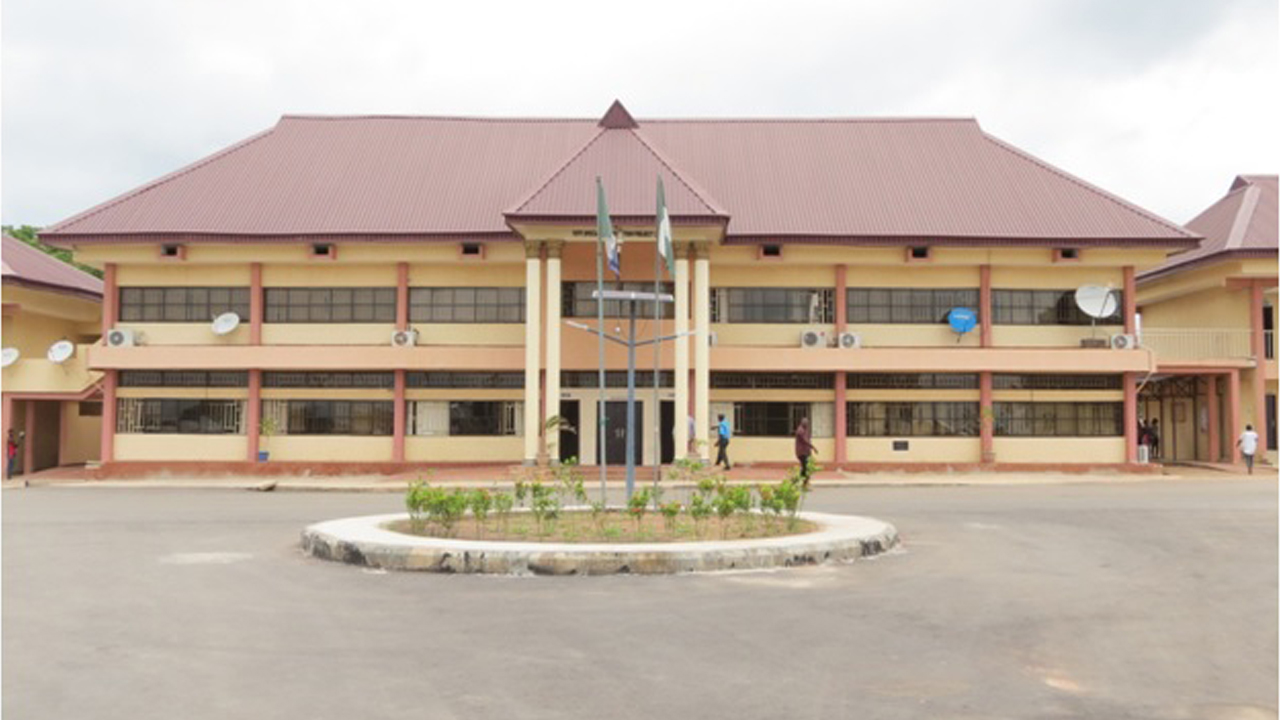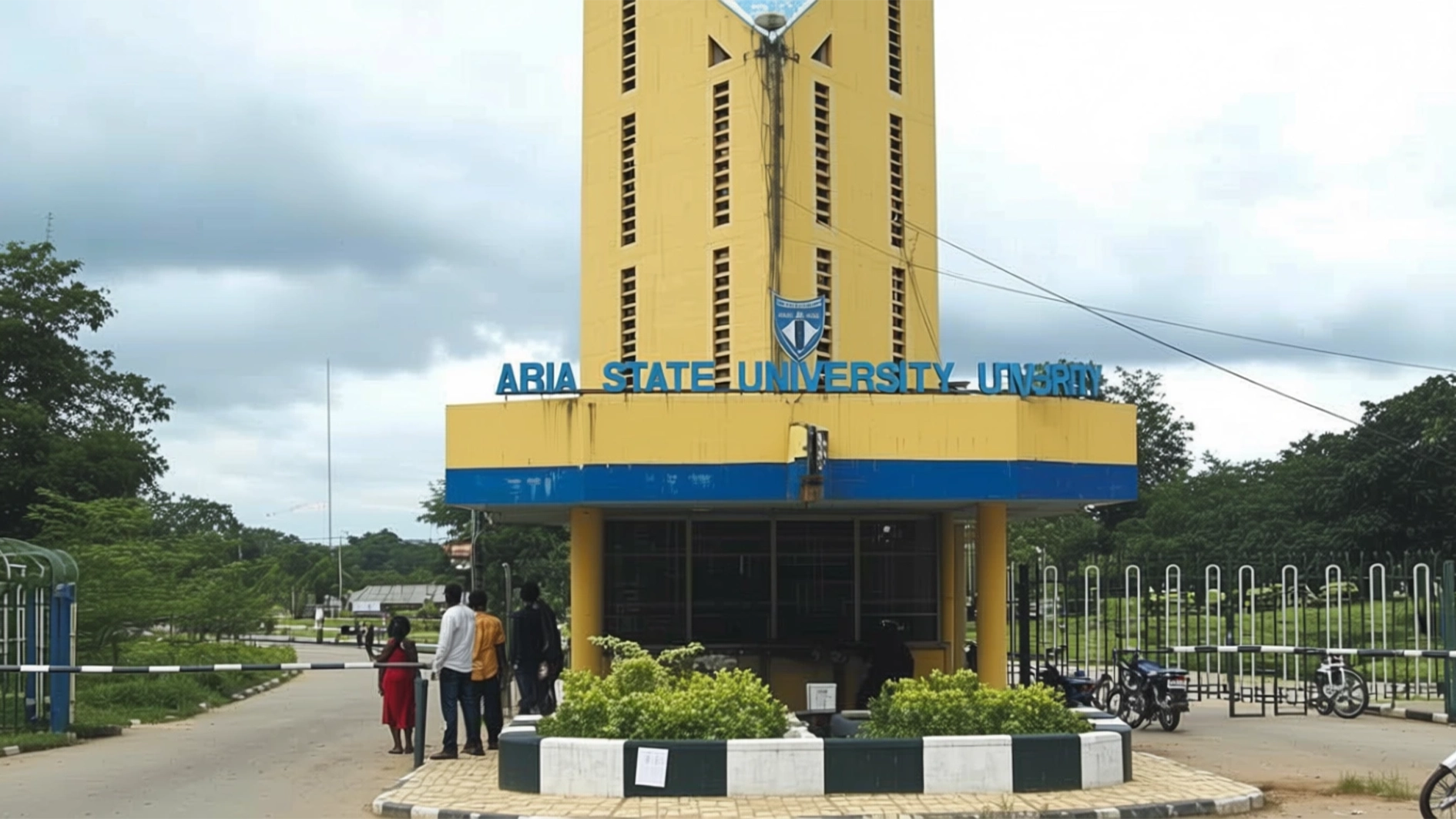
• ATBU goes into dairy products, pure water business
• FUOYE runs pre-degree, JUPEB and part-time programmes
• Varsities in Bayelsa may resort to tuition increase to stay afloat
• Rivers varsity, UNIPORT delve into entrepreneurial businesses
While it is a generally held view that education is grossly underfunded in Nigeria, the coronavirus pandemic appears to have taken a huge toll on the sector, with public federal and state universities currently struggling to survive. The general lockdown, occasioned by COVID-19 pandemic dealt a heavy blow on the economy, which has given birth to recession and worsened the plight of tertiary institutions.
EVEN in good times, public institutions are not well funded. How are they coping and raising internal revenue? Only last week, the Dean of Law, Delta State University, Abraka, Prof Omerionwan K. Edu, who was at Renaissance University, Ugbawka, Enugu State, as Guest Speaker at the 14th Matriculation ceremony of the school, decried the 5.6 per cent current budgetary allocation to education, saying it showed lack of commitment on the part of the Federal Government.
Edu, who lamented the state of affairs in many public universities, noted that poor funding of the sub-sector by various governments has affected the quality of their laboratories, workshops, departments and promoted brain drain.
Officials of University of Nigeria, Nsukka (UNN) and Enugu State University of Science and Technology (ESUT) noted that without the assistance of Tertiary Education Trust Fund (TETFUND), it would be difficult for any university to operate. At UNN for instance, sources told The Guardian that it is difficult for the school to meet its obligations, despite delving into various ventures to generate more revenue.
It was gathered that apart from capital projects and learning facilities provided by TETFUND, what is generated as Internally Generated Revenue (IGR), is spent on maintenance and servicing of its operations, while blocking leakages.
Apart from Federal Government’s allocation, which has become irregular since the outbreak of COVID-19 pandemic, the university gets its IGR from fees paid by students, money from alumni and donations to the university.
Others are UNN Consult, a public liability company empowered to do contracts; university press, lion water, transport services and guest house, among others. However, while the university is the major shareholder in the businesses, it is barely enough to take care of the institution’s needs.
An official who identified himself as Dr Obim told The Guardian that the school had not collected any tuition apart from the one it got before coronavirus outbreak as the session is still running.
“We maintain basic services, we provided gas or fuel as the case may be; we paid electricity bills. There were other minor official works to do as well as other utility issues. We provided water. Sanitation is maintained. We collected N11, 000 hostel fees per student but nothing comes into the school coffers from the amount because it is not even enough to maintain the hostels. It is from the money we provided water, electricity, toiletries and pay workers who clean the hostels.”
He continued: “I can tell you that we have just admitted fresh students but that does not mean that all is well. I don’t want to tell you that there are services that should run that are not running, there are programmes that should be carried out that have been postponed. When you go to hostels to ask questions, they will tell you how they are surviving. These are some of the effects of COVID-19.”
ENUGU State University of Science and Technology (ESUT) is seriously looking inwards to survive the pandemic. The school currently owes two months arrears of salary to its workers and is not doing any capital project at the moment.
To ensure that members of staff continue to work and academic activities are not disrupted, the new management, which came on board few months ago called a meeting of all staff to explain the school’s financial predicament. And like other institutions, ESUT had within the period, tried to maintain essential services by relying on its IGR, while augmenting same with allocation from the state government to pay staff salaries.
To make up for low funds, the school has resorted to using two months allocation and IGR to pay a month’s salary as an interim measure, while praying that things improve soon.
Public Relations Officer of the School, Mr Osita Ugwuoti told The Guardian that though the school was hit by the impact of COVID-19, it is not the worst when compared with other state universities in the zone.

“We have not gone on strike; we are still running our full programmes. We recently presented some of our programmes for accreditation and all of them were approved. Management has been prudent in dealing with the challenges; we have tried to improve our IGR from school fees paid by students through commercialisation of some of our services and operations. For instance, we participated in Nsukka Trade Fair, where we displayed our agricultural fabricated machines. We produced quality hand sanitisers and facemasks during the pandemic and these items have been on demand since then. We produce water for commercial purposes; we also have agricultural farms yielding little revenues. These help to boost our revenues.
“The truth is that no university is spared the effect of the pandemic and none currently can survive without intervention from TETFund. We rely on the agency and other individual assistance to run our services,” Ugwuoti added.
FEDERAL University, Otuoke and Niger Delta University, Ammasoma, may increase school fees or scout for more students, as the impact of economic downturn takes its toll on the sector.
The Federal University, located in the hometown of former President Goodluck Jonathan, continues to groan over poor funding, inadequate infrastructure and unaccredited courses. The university spokesperson said the school may resort to taking more students and introducing more courses to raise funds for running the young institution.
Although the Vice Chancellor, Prof. Teddy Adias and the Public Relations Officer, Mercy Ekot, were not available for comments, a senior official who identified himself as Essien Udo said the institution has no other means of generating revenue apart from TETfund and Federal Government.
Udo said the university is still growing and have not attained the age of generating revenue apart from school fees.
He said the school needs to employ more lecturers, put more infrastructure in place and complete its permanent site to stay healthy and afloat financially.
For the state university, the public relations officer, of the state-owned university, Idoni Ingezi said the subvention to the school is not enough to pay salaries, so the institution borrows to argument payment of salaries.
He said: “The state government does not provide running cost; the school relies on IGR, tuition and funds from the university’s small scale businesses. Provision of basic infrastructure is from TETfund and the support of organisations like NDDC, Chevron and Shell among others.
Though the immediate past administration was able to build the Senate building and dualised the roads on campus, Ingezi said the current administration is also looking at housing if its finances improve.
SUBVENTION to Ebonyi state University, established in 1999 by the first Executive Governor, Dr Sam Egwu has continued to dwindle over the years.
During Egwu’s administration, subvention was N300m; it dropped to N245m during Martin Elechi’s government while it came down to N200m, and presently N119m, which makes it impossible to pay salaries.
Chairman of Academic Staff Union, Ikechukwu Okorie Igwenyi said recession, occasioned by COVID-19 pandemic, affected the smooth running of the university.
According to him, the money being generated from both government subvention and students school fees is not enough to maintain and run the university effectively.
Igwenyi said: “The university needs to buy, service and maintain operational vehicles, pay salaries, purchase stationaries as well as general maintenance.
“Students pay around N100, 000 to N200, 000 depending on the department, because that is the only way to raise funds. Workers have not been paid for the past four months, the only thing government has done so far in the institution is provision of street lights and generator. Come to this institution after 4pm, it would look like a desert as there’s nothing to enjoy,” he added.
IN Abia State, Following the visit of Abia State University’s management to the State Government for financial assistance in the wake of COVID-19 pandemic, governor Okezie Ikpeazu approved N400m bailout funds for the university.
At the College of Health Science Aba, Chairman of Council, Dr Linus Ogbuokiri told The Guardian that the college has introduced more courses including a one- year certificate training course for staff of state Environmental Protection Agency on waste management and bio-security. He said it has also incorporated in its medical technology, the training of Morticians on handling of corpses, saying the team would train students on how to maintain, fabricate, repair equipment and tools used in hospitals, medical laboratories, intensive care units as well as theatre equipment.
He said this would boost not only students’ population but also impact on its internally generated revenue.
VICE Chancellor, University of Benin (UNIBEN), Prof Lilian Salami said the institution is committed to ensuring excellence despite the economic downturn faced by varsities in the country.
Explaining how the institution has fared in the area of execution of capital projects, provision of essential municipal services, Salami said capital projects have continued in the institution through the support of TETfund.
She said the provision and management of essential services have primarily survived on the university’s IGR.
Salami said: “To reduce the effects of economic downturn some strategies have been put in place such as being very prudent in spending. For instance, embracing direct labour, engaging public sector and alumni members.
“Monies internally generated are paid to TSA and spent following established guidelines. For monies got from individuals, the projects are mostly self- driven or given for specifics. They are, therefore, so deployed under strict supervision in the current dispensation.” Salami said.
RIVERS State University (RSU) and University of Port Harcourt (UNIPORT) are carving niches for themselves amid current economic downturn. Checks by The Guardian at RSU showed that the institution is running huge farms that breed cows, pigs and birds among others. The management is also resuscitating its water factory with the aim of boosting its IGR.
Despite the coronavirus pandemic and prolonged ASUU strike that forced universities across the country to shutdown, RSU has been running till date. The state governor, Nyesom Wike, who is visitor to the institution, is said to be very supportive, which is helping the institution to weather the storm. Recently, the governor released N16.6 billion for the upgrade of facilities at the institution.
Speaking on how the university has been surviving, public relations officer of the institution, Dr. Dike Harcourt-Whyte, said: “It has not been easy surviving the current economic situation in the country but our vice chancellor, Prof. Nlerum Okogbule has been doing everything possible to ensure that the school stays afloat. The IGR is nothing compared to the huge expenses but the VC and Council have been very prudent and governor Wike has been very supportive.”

He added: “It is obvious that the economy is bad but we have our huge farms and they are doing very well. We also have a water factory which the VC is trying to revive; while we try to cut costs here and there to ensure we don’t overshoot,”
Asked how the institution is spending monies it generates, Harcourt-Whyte said the funds are used for running and maintenance of the university.
“We invest in keeping our environment clean, we never stopped lectures despite the pandemic that forced many institutions to shut down. We also invest in staff training, sometimes TETFUND helps but the university has become very proactive,” the university spokesperson added.
AT UNIPORT, findings revealed that the institution’s IGR and Federal Government allocation dropped since the outbreak of COVID-19 pandemic. It was also learnt that the strike by ASUU affected its IGR, as statutory payment by new students did not occur because there was no admission for fresh students.
Though the Acting Vice Chancellor, Prof. Stephen Okodudu, declined to speak, it was learnt that the school’s entrepreneurial centre has been revived to generate income, while plans are underway to set up a bakery inside the school and its bottling company has been repositioned.
FROM investigations, all institutions in Imo State raise their revenues through school fees and anxiliary charges from students.
Public Relations Officer of Imo State University (IMSU), Nze Ralph Njoku -Obi, said while the institution adopted free education policy introduced by the administration of Rochas Okorocha, the authorities still collect sundry charges to generate revenue.
He said: “Our sources of revenue are fees and sundry charges. They are lodged into the Treasury Single Account (TSA), but we receive subvention, which I cannot tell you the amount now. Some of the charges include acceptance and processing fees by new students. For instance, post-graduate students pay acceptance fee of N83, 200 and tuition of N150, 000 annually. They are charged other approved fees from time to time.
“There are also other part-time programmes undertaken by the institution, including the Institute of Continue Education Programme (ICEP).
THE Management of Abubakar Tafawa Balewa University (ATBU), Bauchi, has delved into dairy products and pure water business to boost IGR.
The Vice Chancellor, Prof. Mohammad Abdulaziz said the school charges sundry fees, which include hostel fee of N5, 000 for returning students and N20, 000 for new ones.
He said: “We also have courses that give us some tokens. We have ABTU Investment Limited (ATIL) that produces pure water but the income is not what we can rely on. The university is looking inwards to create science and Technology Park, ICT and agriculture. Like you know, Nigeria is spending about N1.5b on importation of diary products and by the time we keep doing agri-business, Nigeria will spend less on that.
“Each of our local cow is producing 1.5litres of milk daily. We are focusing on how to improve on this. Our target in few years to come is how to stop Nigeria from spending this whopping amount of N1.5b on milk.”
DESPITE the country’s economic downturn, Kano University of Science and Technology (KUST), Wudil, is surviving through innovations and alternative income generation. The university is leveraging private business opportunities and support from philanthropists to meet a significant portion of its financial needs.
Vice Chancellor, KUST, Prof Shehu Musa, said the institution has devised innovations to boost its IGR without necessarily increasing students’ registration charges.
“The university has a business venture, the Kano University of Science and Technology Consult and Investment Limited meant to stimulate investment opportunities and enhance IGR. Our emphasis is on agriculture. The company is strengthening the full commercialisation of the university farm, coordinating other ventures like the University Printing Press, Bookshop, Bottled Water Production Company, Bakery and many other investment opportunities.
“ We have realised government alone cannot sufficiently fund university education and that is why we have embarked on private business ventures to augment government funding.”
FOR more than 10 years, tertiary institutions in Ondo State have been struggling to survive due to acute shortage of funds, having adverse effects on all activities ranging from payment of salaries and deficit in infrastructural development.
Speaking on the effects of shortage of funds at Olusegun Agagu University of Science and Technology Okitipupa (OAUSTECH), the Public Relations Officer, Mr. Abdu-Majeed Adebayo, said efforts made by the institution to generate revenue internally did not measure up.
He added that the university relies on alumni association and humanitarian societies to assist the institution.
FEDERAL University Oye Ekiti (FUOYE) said it has devised various academic programmes as well as business ventures to shore up its IGR, to augment funds coming from government.
Vice Chancellor, Prof. Abayomi Sunday Fasina, said having realised that government alone could not provide sufficient funds to meet the academic, research and infrastructural needs of FUOYE, it became imperative to introduce some academic programmes that could generate income and fund itself.
Fasina who spoke through his Special Adviser on Media Matters, Mr Wole Balogun said: “Some of these steps include creating Pre-Degree and JUBEP programmes through which prospective candidates who have sat for the UTME can join 200 level. We also have online programmes as well as part time programmes for which we have got approval to run 20 academic programmes at the undergraduate level from October this year.
“We also have Top-Up programmes, which is meant for candidates with HND who are willing to convert their qualification to first degree. We have also set up various ventures, Institute of Part-Time programmes and the Institute of Agriculture. There is also FUOYE printing Press as well as other business outfits generating money for the school. Other businesses in the pipeline include FUOYE fuel station, FUOYE Sachet and Bottle water factory, FUOYE Microfinance Bank and FUOYE commercial farm.”






